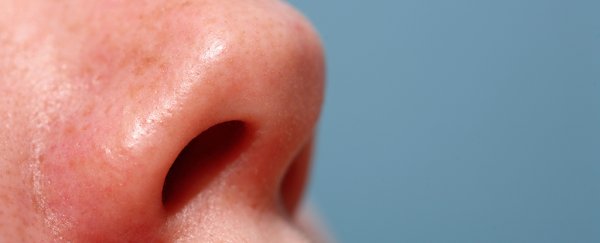It's been widely reported how the mix of our gut bacteria can end up having a direct impact on our health. Now, new research points to a similar link between our wellbeing and the microbiome in the nose.
That's right – your nose is home to an entire host of microorganisms, just like the rest of your body. The different types of 'good' or 'bad' bacteria specific to the nasal cavities might end up protecting you from certain health issues, or putting you more at risk of others.
The inspiration for this new study came from the mother of one of the researchers, who was having problems with headaches and chronic rhinosinusitis – a condition that causes pain and swelling in the sinuses and nasal cavity.
"My mother had tried many different treatments, but none worked," says microbiologist Sarah Lebeer, from the University of Antwerp in Belgium. "I was thinking it's a pity that I could not advise her some good bacteria or probiotics for the nose. No one had ever really studied it."
Lebeer and her team analysed nose bacteria from 100 healthy volunteers and 225 people with chronic rhinosinusitis, characterising 30 different families of bacteria in all. One family in particular stood out: lactobacilli.
These bacteria were more abundant in the healthy group of study participants – up to 10 times more abundant in some cases. One particular strain of Lacticaseibacillus identified appeared to have adapted for nasal life, having evolved unique genes to manage the high oxygen levels in the cavity, and using thin tubes called fimbriae to help cling on.
The next problem for the researchers was testing whether the presence of these lactobacilli could be artificially introduced as a probiotic – something that can't be easily done using an animal model.
"There are actually no real good animal models or mechanistic models to study the interaction of nose bacteria and human host," says Lebeer. "The microbiome of the nose of mice compared with humans, it's certainly different."
In the end, the team created an experiment where one lactobacillus strain was sprayed into the noses of 20 healthy volunteers, twice daily for two weeks. While the nasal cavity typically filters out foreign bodies, here the bacteria were able to colonise.
Any potential health effects of this intervention weren't measured scientifically, though some participants reported being able to breathe more easily as a result. But as a proof of concept, it shows that snorting probiotics might be possible.
It's important to point out the relatively small sample size at play here, which means it's too early to make generalisations about the population at large (and we certainly wouldn't recommend putting probiotic yoghurt up your nose just yet).
That said, the study shows enough evidence that the microbiomes in our noses could affect our health, just like the microbiomes in our stomachs and elsewhere in the body.
Further down the line, we might be able to come up with safe, effective treatments that can grow certain nose bacteria for improved wellbeing.
"We think that certain patients would benefit from remodelling their microbiome and introducing beneficial bacteria in their nose to reduce certain symptoms," says Lebeer. "But we still have a long way to go with clinical and further mechanistic studies."
The research has been published in Cell Reports.
